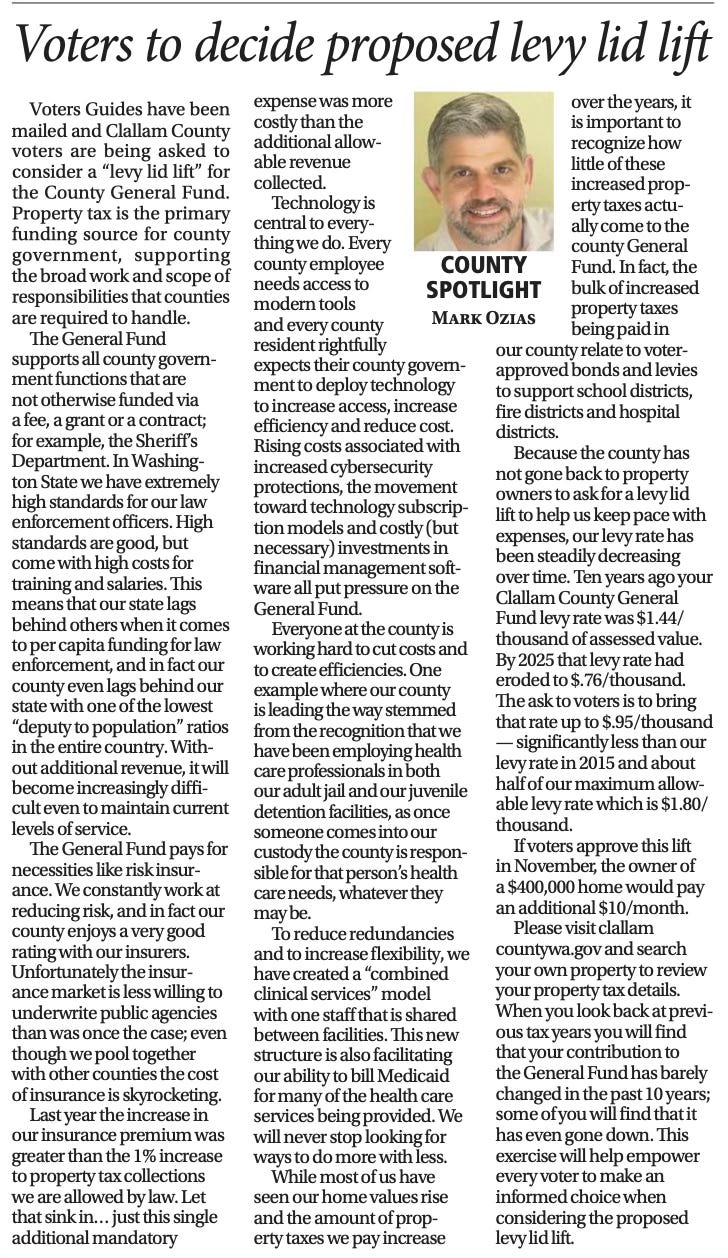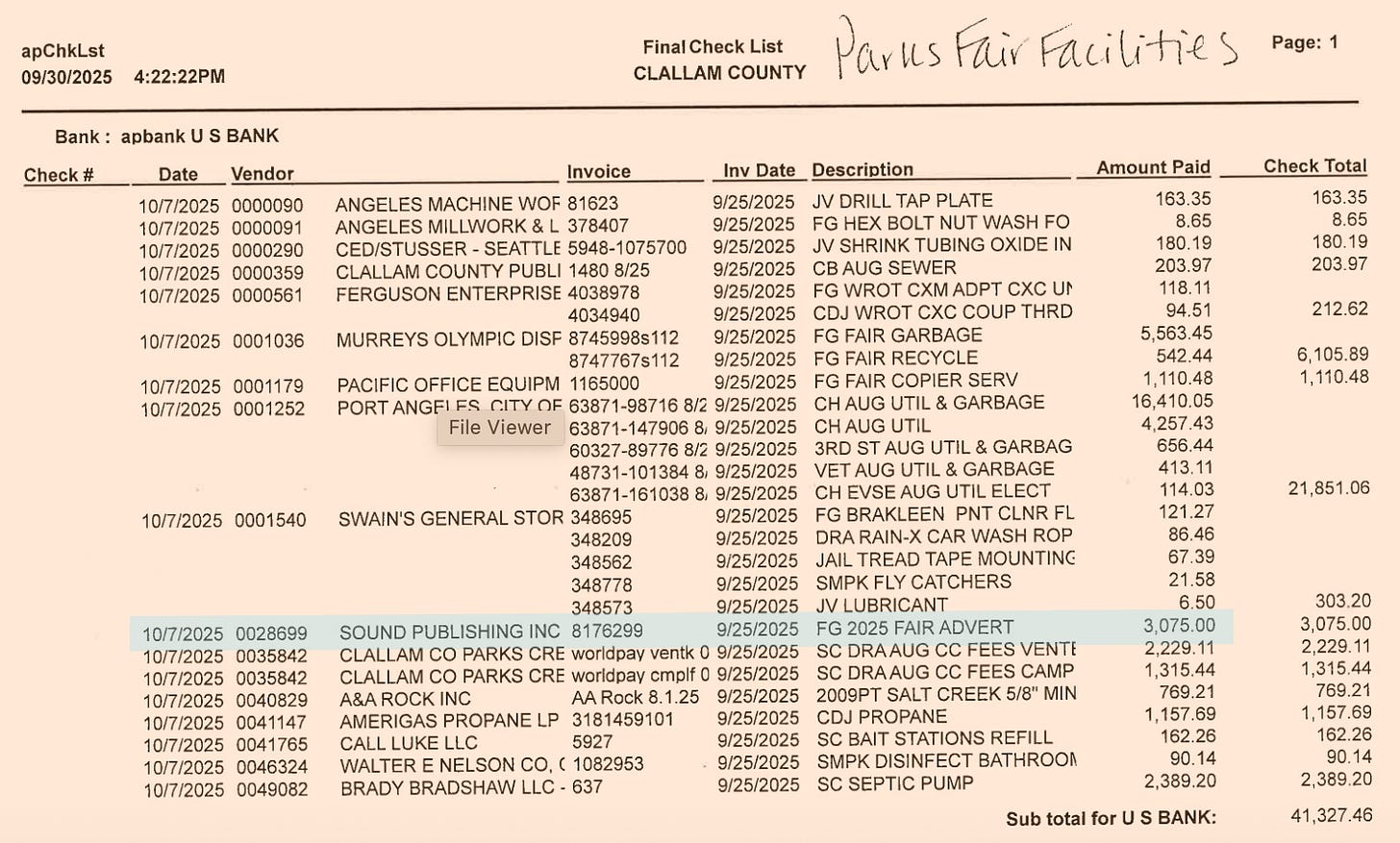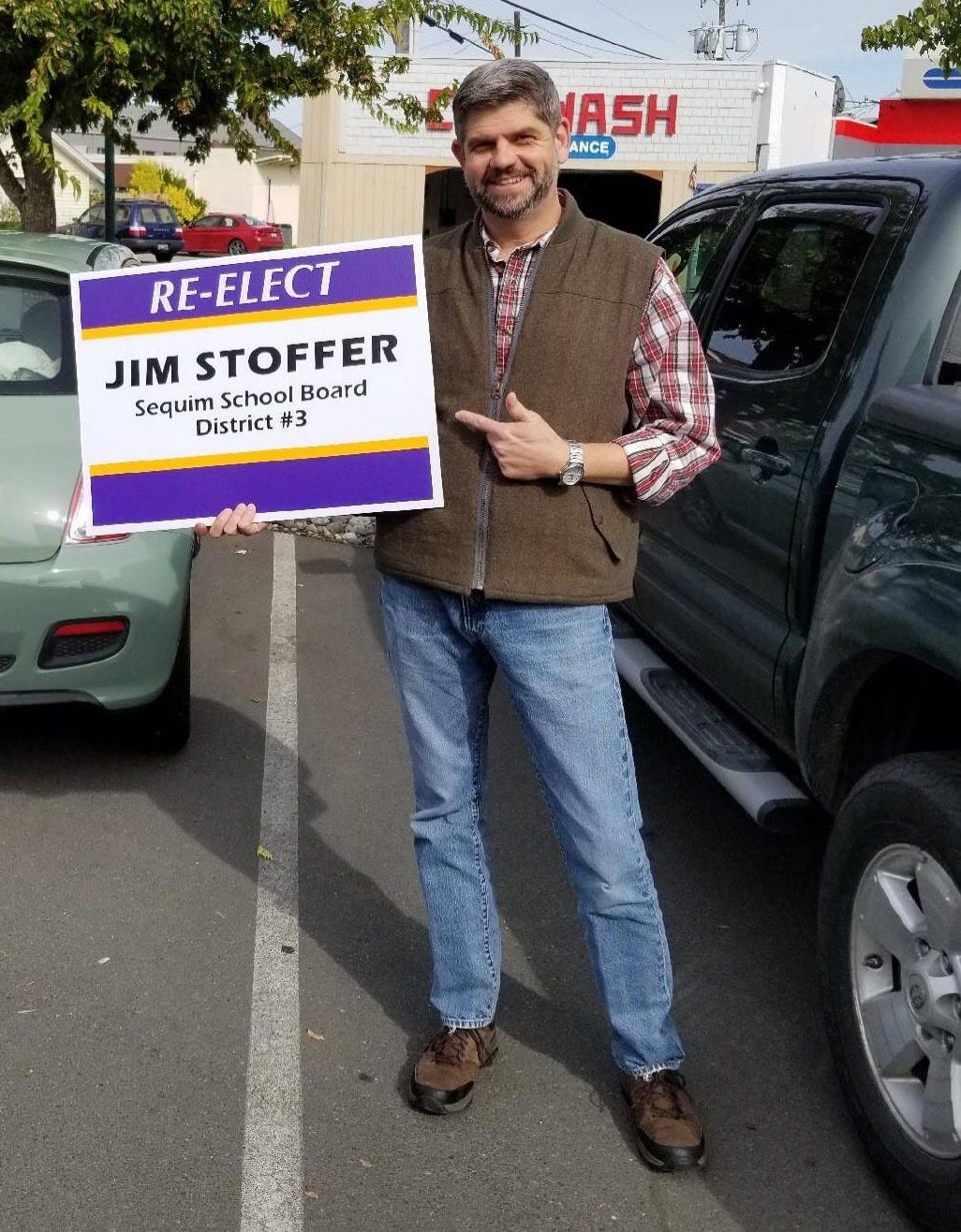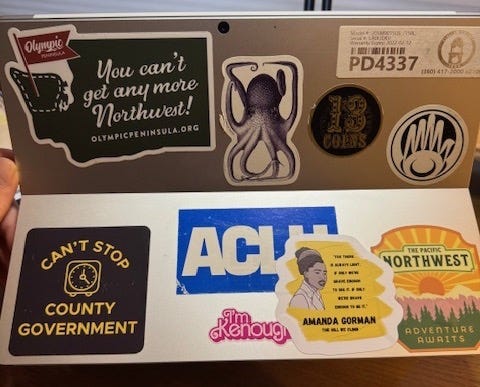County Commissioner Mark Ozias’s recent Sequim Gazette column, presented as part of the “County Spotlight” series, reads less like neutral information and more like a campaign pitch for the county’s proposed levy lid lift. Published as news rather than opinion — and without a counterpoint — the piece highlights growing concerns about blurred boundaries between government communication and independent journalism.
A Government Message Framed as News
Commissioner Ozias’s column in the Sequim Gazette yesterday urges voters to approve the proposed levy lid lift for the County General Fund. The piece details rising costs for law enforcement, insurance, and technology, arguing that “without additional revenue, it will become increasingly difficult even to maintain current levels of service.”
But while the information may sound official, the presentation raises questions. The article appeared under “County Spotlight,” not “Opinion,” implying it was factual reporting rather than a persuasive argument. No opposing view or analysis was offered — just a single voice from county government advocating for a tax increase.
The Sequim Gazette and Peninsula Daily News — both owned by Sound Publishing — also receive substantial county advertising dollars. When a government body is among a newspaper’s biggest clients, it becomes harder for the public to tell where journalism ends and public relations begins.
A Case for Revenue, Without Context
Commissioner Ozias describes the county’s financial pressures in broad terms — citing high costs for insurance, technology, and law enforcement — but offers few specifics about where money is currently being spent or what cost-saving options have been explored.
When he writes that “everyone at the county is working hard to cut costs,” residents may recall several recent examples that seem to tell a different story: Commissioner Ozias’s ordering of private security detail for friend and Charter Review Commissioner Jim Stoffer, continued funding for nonessential programs like the county’s poet laureate, and the expensive handling of the Towne Road closure that redirected state grant money to a campaign donor and added $1.5 million in county costs.
Rising Insurance Costs — But Rising for Whom?
Commissioner Ozias points to “skyrocketing” insurance premiums as one of the main reasons the county needs more revenue. He’s not wrong that costs are up — but they’re up for everyone. Private citizens face the same pressures, from car and homeowners insurance to health coverage. Are residents getting a 30% boost in revenue?
And while the Commissioner now expresses concern for high premiums, residents in Dungeness might recall that when the county closed Towne Road for two years, local insurance rates were predicted to rise because emergency vehicles would take longer to reach homes. That decision didn’t draw the same concern for affordability.
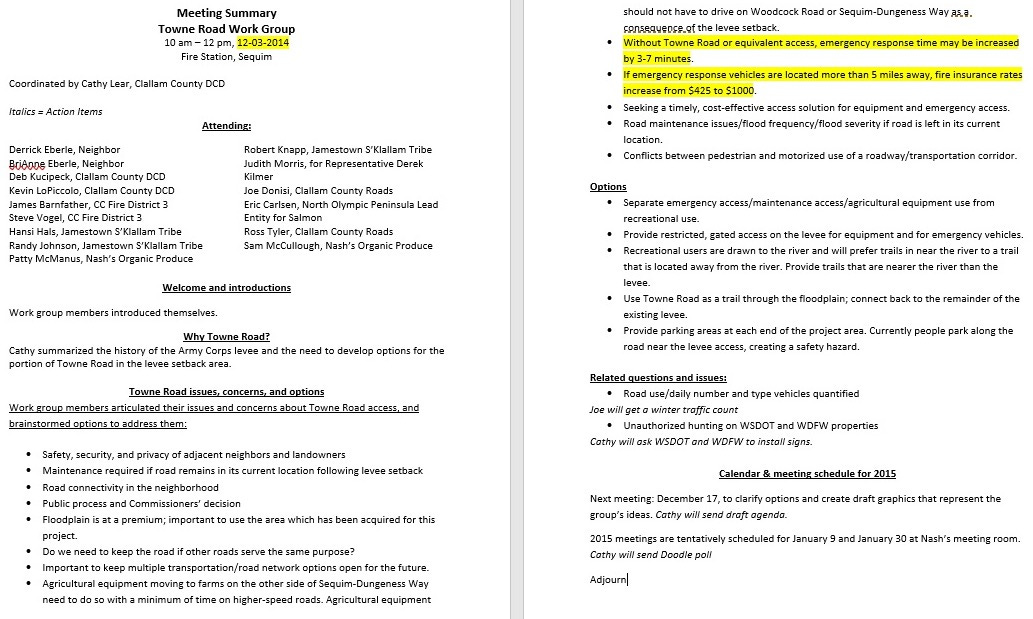
Technology and Transparency
According to Commissioner Ozias, every county employee “needs access to modern tools.” Fair enough — but taxpayers might prefer that those tools be used responsibly. Residents have already seen commissioners’ laptops covered in political stickers and used for personal business, Star Wars role-playing games, and off-topic browsing.
So when Commisioner Ozias touts “technology investments,” it’s fair to ask: investments for what purpose, and for whose benefit?
The Broader Question: Who’s Watching Whom?
Commissioner Ozias ends his column by encouraging voters to “make an informed choice.” Ironically, that’s exactly what this discussion is about — whether voters are being given full, balanced information or simply a polished narrative from those in power.
It’s not unusual for elected officials to explain policy decisions. But when such explanations are published as news — unchallenged, unexamined, and unbalanced — it crosses an important line.
Sound Publishing and the Sequim Gazette have an obligation to maintain independence, even when covering government perspectives. Voters deserve to hear both sides of any tax measure, especially when one side holds the checkbook.
The problem isn’t just what was written — it’s what wasn’t. When media and government begin to speak with one voice, public trust becomes the first casualty.



